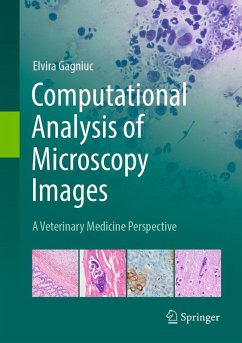
Canine and Feline Skin Cytology (eBook, PDF)
A Comprehensive and Illustrated Guide to the Interpretation of Skin Lesions via Cytological Examination
Versandkostenfrei!
Sofort per Download lieferbar
88,95 €
inkl. MwSt.
Weitere Ausgaben:

PAYBACK Punkte
44 °P sammeln!
This book discusses canine and feline skin cytology and the importance of this diagnostic tool in interpreting skin lesions. With more than 600 clinical and cytological color pictures, it explains the cytological patterns observed in all cutaneous inflammatory and neoplastic lesions in cats and dogs, as well as cutaneous metastasis of non-primary skin neoplasms. The first part of the book describes cell morphology and cytological patterns, providing an overview of the normal structure of the skin. In the second chapter, readers learn how to choose the best techniques for different types of les...
This book discusses canine and feline skin cytology and the importance of this diagnostic tool in interpreting skin lesions. With more than 600 clinical and cytological color pictures, it explains the cytological patterns observed in all cutaneous inflammatory and neoplastic lesions in cats and dogs, as well as cutaneous metastasis of non-primary skin neoplasms. The first part of the book describes cell morphology and cytological patterns, providing an overview of the normal structure of the skin. In the second chapter, readers learn how to choose the best techniques for different types of lesions. Further chapters present the cytological findings in the main inflammatory and neoplastic skin diseases. By focusing on the macroscopic aspects of the lesions from which the cells are collected, it helps readers to interpret cytological specimens. The final chapter explores the cytology of cutaneous metastasis from internal organs or accessory glands. This book offers veterinary studentsand practitioners alike an essential diagnostic tool.
Dieser Download kann aus rechtlichen Gründen nur mit Rechnungsadresse in A, B, BG, CY, CZ, D, DK, EW, E, FIN, F, GR, HR, H, IRL, I, LT, L, LR, M, NL, PL, P, R, S, SLO, SK ausgeliefert werden.












